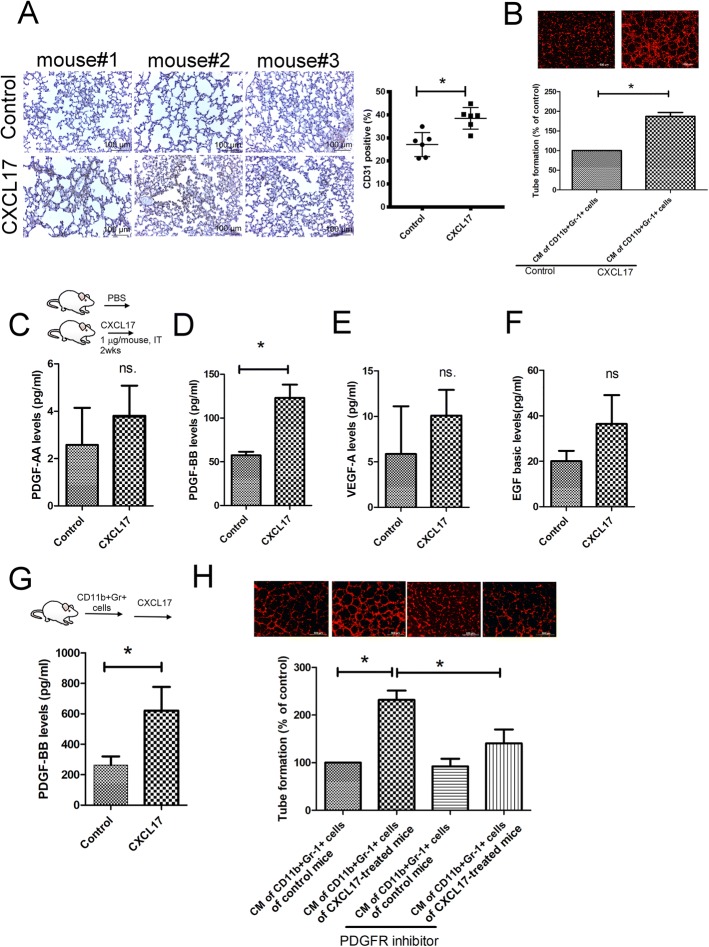Fig. 4.
CXCL17 increases angiogenesis in lung metastatic niche by recruiting CD11b+Gr-1+ MDSCs. a CXCL17 increased CD31+ cells in the lungs of mice. Digital images of tissues were captured and analyzed with ImageJ software to calculate the percentage of positive cells (high positive + positive + low positive cells). b Conditioned medium (CM) (50%) of CD11b+Gr-1+ MDSCs isolated from the lungs of CXCL17-treated mice (n = 5) increased tube formation of C166 cells. The effect of CXCL17 in the PDGF-AA (c), PDGF-BB (d), VEGF-A (e), and EGF basic (f) secretions of CD11b+Gr-1+ MDSCs in vivo. BALB/c mice were treated with PBS or recombinant mouse CXCL17 protein by intra-tracheal administration for 14 days (1 μg/mouse, 2 times/week, n = 6 per group). The lungs of these mice were harvested and constrained by CD31 antibody and H&E. Alternatively, CD11b+Gr-1+ MDSCs were isolated from lungs of PBS or CXCL17 treated mice (n = 6 per group) by antibody conjugated magnetic beads, and CM was collected after culturing for 24 h. The expression of various angiogenic factors was assessed by Luminex Assays. g CXCL17 increased the expression of PDGF-BB in CD11b+Gr-1+ MDSCs isolated from the lungs of normal mice. CD11b+Gr-1+ MDSCs were isolated from the lungs of normal mice (n = 5) by antibody conjugated magnetic beads and treated with rmCXCL17 (10 ng/ml) for 24 h. The expression of PDGF-BB was assessed by Luminex Assays. h Inhibition of PDGFR-β by specific inhibitor (DMPQ-2HCl, 5 μM) prevents CD11b+Gr-1+ MDSC-mediated C166 tube formation. Results are representative of at least three independent experiments in vitro studies, and each value is the mean ± SD of three determinations. *Significant difference between the two test groups (p < 0.05)

